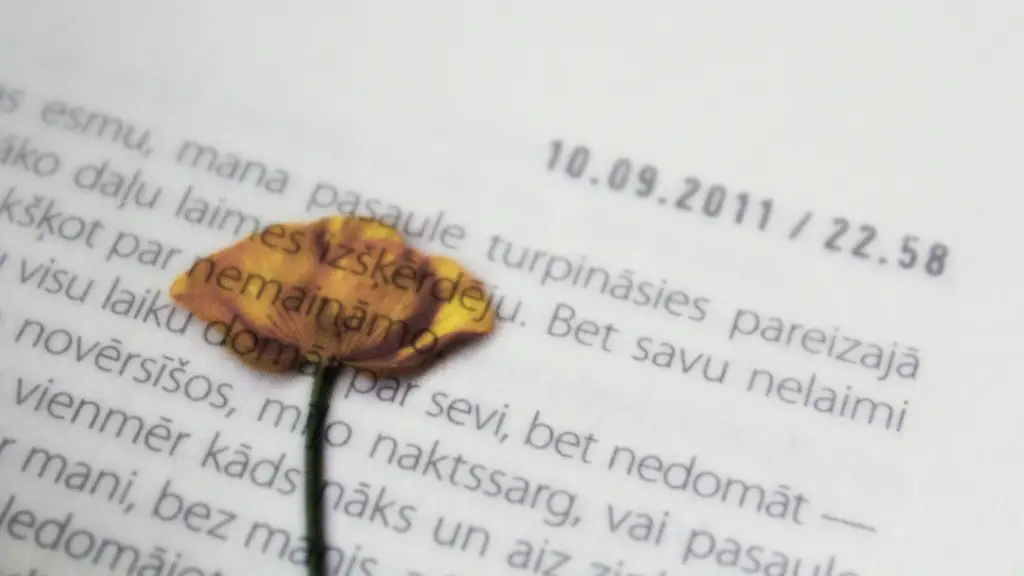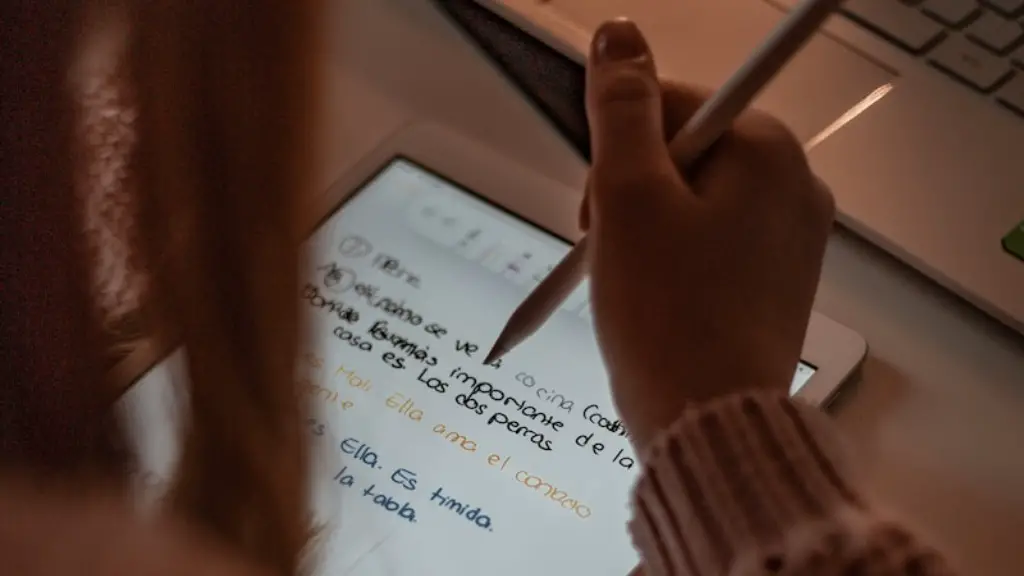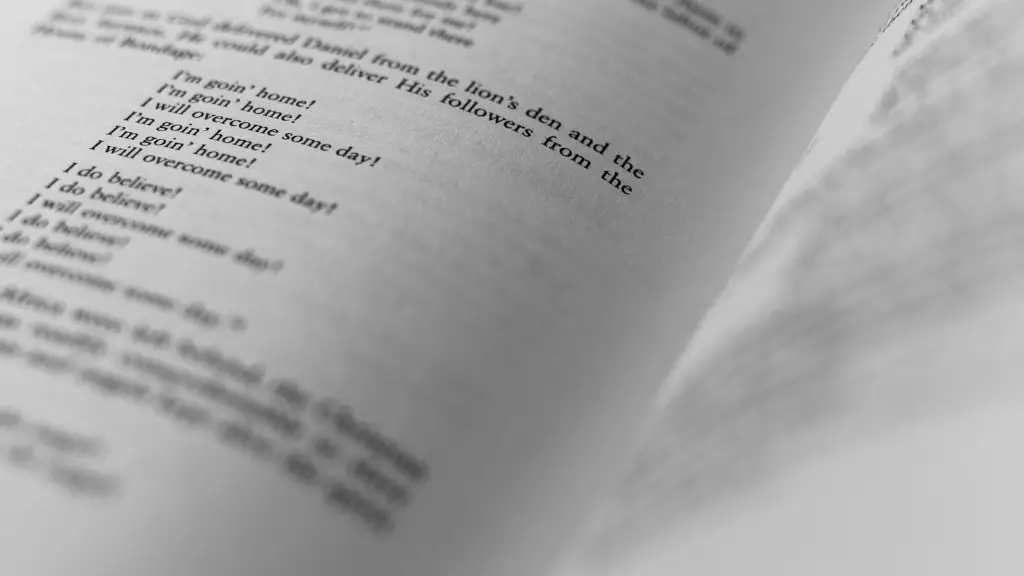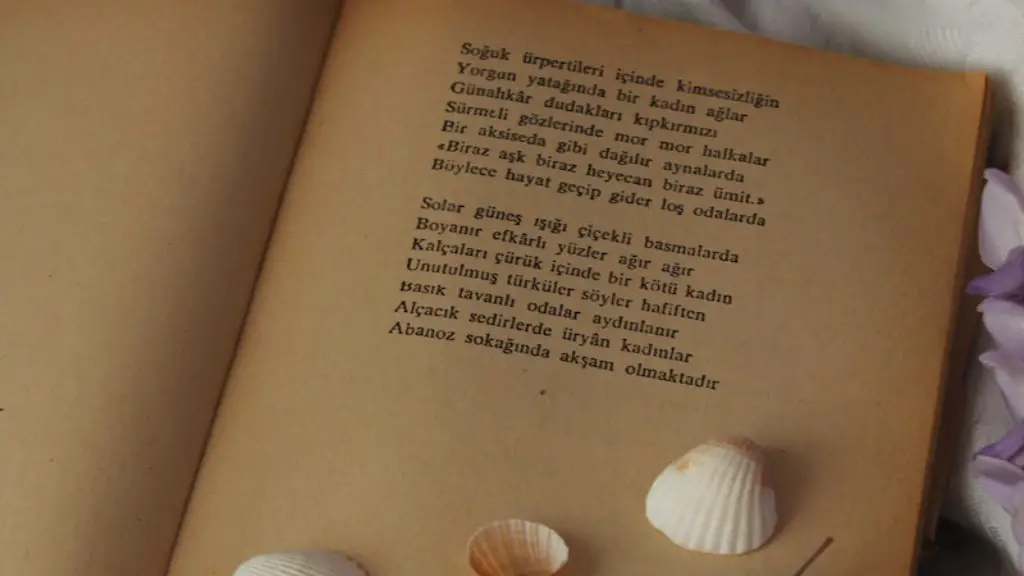Poetry is one of the oldest and most powerful forms of creative expression. It is a way for us to express our emotions, capture our thoughts, and explore our imagination. Poetry has the ability to touch our hearts, express our deepest feelings, and help us understand ourselves and our world. Through the use of powerful words and vivid imagery, poetry can transport us to different worlds and teach us valuable lessons.
The beauty of poetry is its ability to evoke strong emotions including joy, sadness, surprise and fear. When reading a poem, readers can connect to the message and make a personal connection to the words. Poetry has the power to move us, make us laugh, or even cry. It is a powerful tool to communicate and express our ideas, opinions and feelings.
Furthermore, poetry can provide insight into the human condition and our society. Poets often use their work to comment on current events or social issues. They can use their words to call attention to injustice and provide a source of solace in difficult times. Through the use of powerful metaphors and imageries, poetry can shine a light on different perspectives and open up the minds of readers to a new way of thinking.
Poetry can also be a source of comfort and inspiration. In times of hardship, reading poetry can be a source of solace. It can serve as a reminder that we are not alone in our struggles and struggles can be shared. Poetry can also inspire us to aspire and reach for the stars. Through reading the works of our favorite poets, we can be motivated to pursue our dreams and never give up.
It is clear that poetry has an important role in our society. Poets, through their work, can create powerful connections and provide new perspectives. Furthermore, poetry can be a source of comfort and can help us make sense of our lives. Poetry is an essential part of our culture and should be appreciated and celebrated.
The Form and Structure of Poetry
Poetry can take many forms, from traditional rhyme and meter to free verse and prose poetry. Each form has its own set of rules and techniques which the poet must use to convey their ideas. Traditional forms of poetry often use rhyme and meter to create a rhythm and flow in their work. This helps to engage the reader and make the poem more enjoyable to read. In contrast, free verse poetry does not have a formal structure and allows the poet to explore their ideas in a more creative and open way.
No matter what form they take, poems are made up of elements such as imagery, metaphor, sound, and rhythm. By carefully crafting and arranging each element, poets can create powerful and evocative works of art. Poets use different techniques to convey emotion and create tension in their work. For example, a poet may use alliteration to create an atmosphere of calm or repetition to build up to an emotional climax.
The Role of Poetry in Education
Poetry is an important part of education and is used to help children develop their creative and critical thinking skills. Children can learn to think critically about what they read, appreciate different perspectives, and express themselves clearly and concisely. Poetry can also be used to develop language skills and introduce concepts such as rhyme and meter. By reading and writing poems, children can gain a better understanding of language, practice using different forms of communication, and appreciate different cultures and forms of art.
Poetry can be a powerful tool for teaching children about social issues and inspiring them to take action. By reading the works of powerful poets, children can be inspired to challenge oppression, stand up for injustice, and appreciate beauty in the world. Poetry can be a source of inspiration and hope in difficult times and give children the courage to make positive change.
The Impact of Poetry on Society
Poetry has played an important role in our society for centuries. It has been used as a tool for protest, a source of comfort and solace, and a way of giving voice to the voiceless. Through the words of poets, readers can gain a better understanding of the world around them and be moved to act. Poetry can also bring people together, inspiring conversations about social issues and bringing people from all backgrounds together.
Today, there is still much to gain from poetry. It is still a powerful tool for expressing ideas and a way to bring attention to injustice. Poetry can also provide hope and give us courage to confront our fears and make changes. Through the words of poets, we can be reminded of what matters most and be inspired to make a difference.
Provides an Outlet for Creativity
Finally, poetry provides an outlet for creativity and personal expression. Poets can explore their feelings and express their thoughts and feelings in a creative and meaningful way. Through poetry, writers can explore meaningful themes, find connection in seemingly unrelated ideas, and tap into their imagination. Poetry can also be used as a form of self-expression, a way to share personal stories and insights.
Poetry is a powerful form of expression and can have a profound impact on those who read and write it. Through its words, poetry can evoke strong emotions, provide insight into our lives, and bring people together. It is a wonderful tool that can be used to communicate our ideas and feelings, inspire others, and bring light to social issues.
Uses Metaphors and Imagery to Explore Ideas
Poets often use metaphors and imagery to explore complex topics and abstract ideas. By carefully crafting their words, poets can create vivid images and powerful stories. Through the use of metaphors, poets can explore heavy topics such as depression, regret, and grief in an artistic way. Metaphors can also be used to discuss social issues and, by adding layers of meaning, make a comment on the state of the world.
In addition, poets often use symbols to explore deeper meaning in their work. By using symbols, such as animals, plants, or objects, poets can create special connections and explore subtle ideas. Poets can also use symbols to discuss spiritual concepts, such as life and death, in a unique way. By carefully crafting and arranging each symbol, poets can create a unique and powerful piece of work.
Allows Poets to Challenge Convention
Poetry is also a way for poets to challenge conventions and push the boundaries of language. By using traditional forms of poetry, such as rhyme and meter, poets can create something completely new and unique. By experimenting with form, poets can create poems that explore new ideas and perspectives and challenge traditional ideas. Furthermore, poets can use free verse poetry to explore non-traditional topics and express their ideas in a different way.
Another way poets can challenge convention is by exploring different topics and themes. Poets can use their work to explore issues such as racism, gender equality, and the environment. By discussing these topics in an artistic and creative way, poets can inspire conversations and bring attention to important issues. Poets can also use their work to inspire social change and make a comment on the world around them.
Uses Words to Create a Unique Story
Finally, poetry allows poets to create a unique story with their words. Poets can use their work to tell a story, express their feelings, or explore an issue. By carefully crafting and arranging each word, poets can create an emotional and meaningful piece of work. Poetry can also be used to teach a lesson, explore difficult topics, or challenge traditional thinking. By carefully crafting each piece of work, poets can create something truly special.
In conclusion, poetry is an invaluable and powerful form of expression. Poets can use their work to explore their emotions, express their thoughts, and challenge social conventions. Poetry can move us in ways no other form of art can and is an essential part of our culture that should be appreciated and celebrated.




